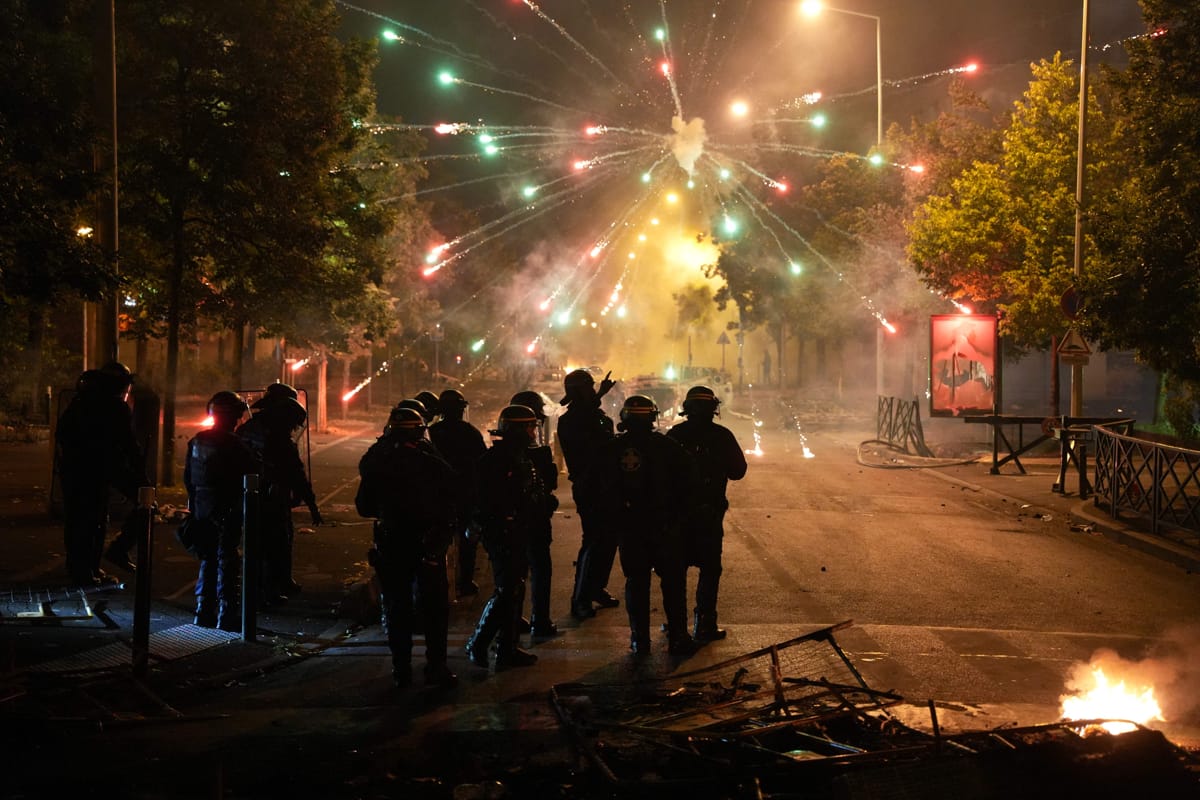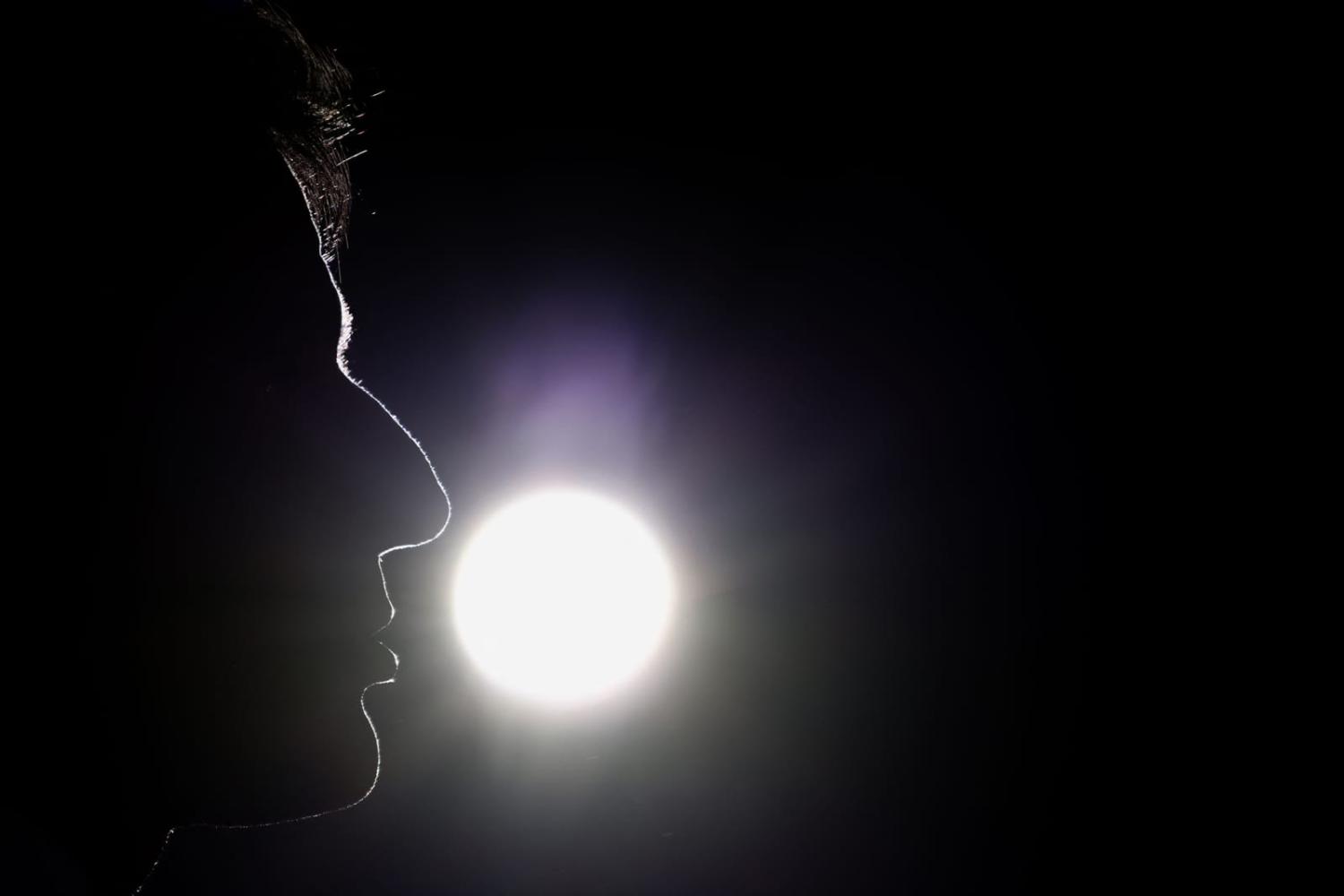An excellent new French film, November, depicts a dedicated group of selfless patriots working effectively together to complete an urgent task of national importance: defeating terrorism. Although a gritty thriller based on actual events, November also qualifies as wish fulfilment. Sadly, modern France only rarely seems so united or so purposeful.
Widespread rioting over the police shooting of an adolescent at a traffic stop does not quite qualify as a French George Floyd moment. The French people regularly take to the streets, burning, breaking and biffing things in their way. They are impelled in part by tradition and custom, dating back not merely to the performance art of the 1968 riots but as far as the bloody, anarchic popular “days” during the Revolution.
The elemental, visceral rage that provokes grievances remains compellingly strong. In English, we talk about sowing the wind and reaping the whirlwind. French protesters this year coined a more dramatic version: “ce qui seme la misère recolte la colère”. (“He who sows misery reaps fury.”) In France, demonstrators take to the streets because they expect to fight and to win. Lots of historical examples confirm that judgment about government frailty in the face of protest.
In addition to specific complaints – the burden of retiring two years later, paying more for petrol, watching powerlessly as the government circumvents the National Assembly, or contempt for the police version of law and order – French protestors are often objecting to the modern world and all its works. Unless you win the lottery as an adolescent and enter one of the grands ecoles, France offers few second chances. Despite cloying nostalgia for country life, those still living in rural areas lack doctors, teachers and jobs. Intractable problems such as police violence, entrenched racism, regional unemployment and deep inequality hobble the nation’s growth.

The oddity is not that many French despise their president, but that they hate him for such peculiar, personal reasons. Emmanuel Macron’s condescending manner, his older wife, his retro waistcoats, his glib strutting and affected posing, all seem to arouse visceral distaste. Earlier presidents might have been scorned for sphinx-like ambiguity (François Mitterrand), a criminal conviction (Jacques Chirac), a taste for bling (Nicolas Sarkozy) or riding on a scooter (François Hollande). Nonetheless, limited progress in a few fields has left those presidents more gently treated than Macron can hope to be.
In 1940, the Maginot line was supposed to prove extremely modern, impregnable and utterly formidable – until Hitler’s Panzers drove around it. France’s intellectual Maginot lines are now just as indefensible. Cartesian logic, grand traditions and unassailable self-assurance do not comprise a winning argument or underpin coherent policy. When Macron went to China last April, a renowned French commentator expressed somewhat anguished concern. Her worry then was not that Macron’s visit seemed sycophantic and divisive in Europe, as she has also noted, but that the Chinese might not prove sophisticated or subtle enough to understand the psychology of the French. Few political bubbles have ever been so hermetically sealed as that covering the inner arrondissements of Paris.
In France, political debate is too often anchored on the Left by an obdurate, populist firebrand, Jean-Luc Mélenchon, with no seat in parliament and three failed tries for the presidency behind him. Having also been defeated three times in presidential elections, Mélenchon’s counterpart on the Right, Marine Le Pen, lies patiently in wait. Le Pen has reason to hope that a veneer of respectability coupled with parliamentary representation, buttressed by fears of street violence and dog-whistling on immigration, will help her slide into office.
The established (and establishment) parties on the moderate Left and Right continue to wither away, while the president’s own party subsists with not much structure, little doctrine and few leaders in waiting. Rejects who refuse to go away – François Fillon, François Bayrou, François Hollande – still clutter the landscape. In the first round of the last parliamentary elections, more than half of the French electorate (52.5%) did not bother to vote.
Voters seeking resolute, practical leaders can still turn to their prime minister, Élisabeth Borne. She is a good diagnostician who suggested that France requires a period of convalescence during which its leaders ought not “brusquer les choses” (“barge things about”). Borne seems as grounded and effective as her predecessor bar one, Édouard Philippe, now holed up in the mayor’s office in Le Havre. As Philippe knows well, any successful, popular French prime minister is a candidate for dismissal by a jealous president. A Constitution crafted for General Charles de Gaulle cannot be made to work for others.
Next year, France will recover a glimmer of glamour, perhaps even optimism. After the Olympics, Notre Dame will re-open with a Mass. Who knows if the French will once more be, as they so sweetly say, “bien à son aise dans sa peau” (“comfortable in their own skins”)?

